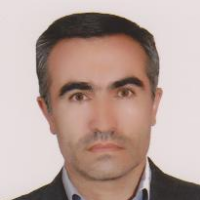The Effect of Timing the Use of Strategic Self-Talk on Performance and Learning of Basketball Shots in Novices
The purpose of this research was to study the effect of timing the use of strategic self-talk on the performance and learning of novices.
36 new students in basketball skills were selected and randomly assigned into three pre-feedback strategic self-talk, post-feedback strategic self-talk, and control groups. In each session, 60 practice trials were given from four points of the basketball arc. After every three trials, the coach gave feedback to the trainees about how to perform the skill. In the first experimental group, the novices were taught to use strategic self-talk after completing three practice trials and before providing feedback to identify errors; In the second experimental group, the novices were asked to use strategic self-talk after providing feedback to correct errors, and in the control group, both training and feedback were given, but no self-talk was provided. Finally, two weeks after the end of the intervention, a retention test was held.
The two-factor analysis of variance results in the acquisition phase showed that the main effects of sessions (P=0.000), and group (P=0.024) on basketball shooting performance were significant. Also, the interactive effect of sessions and groups on basketball shooting performance was significant (P=0.001). Finally, strategic self-talk before providing feedback improved basketball shooting skill learning compared to strategic self-talk after providing feedback (P=0.007).
It seems that strategic self-talk before providing feedback is beneficial for learning basketball shots due to the attention to error identification and the use of the coach's feedback for error correction.
-
The Effect of Love of Sport on Satisfaction: A Case Study of Sporting Event Volunteers
Mansour Khalilzadeh Kouchameshki, Farshad Tojari *, Hamid Sadjadi Hezaveh
Sport Psychology Studies, -
The Role of Personality Development on the Satisfaction of Sport Event Volunteers
Mansour Khalilzadeh Kouchameshki *, Farshad Tojari, Hamid Sadjadi Hezaveh
Sport Psychology Studies,



